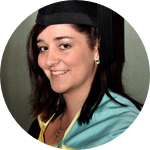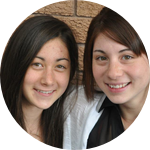About This Project
Asiatic black bear gall bladder is considered by practitioners of traditional Chinese medicine to be one of the most potent “herbal” medicines. Animals Asia is working to close down the illegal bile farms in Vietnam and provide necessary medical treatment to the bears they rescue. This study aims to use non-invasive hormone monitoring tools to collect data from rescued and rehabilitated bears with the hope of uncovering factors that may influence the progression of rehabilitation of the bears.
Ask the Scientists
Join The DiscussionWhat is the context of this research?
Currently, there is no research conducted on the reproductive health and stress in the bear populations in Vietnam in relation to the illegal bear bile farming. Chronic stress that is ensued from unethical activities, such as long-term captivity of bears on farms and invasive bile removal procedures, is the most serious issue in animal health and welfare science. Chronic stress could easily diminish the capacity of bears to reproduce as well as increasing their risk to infections and injuries, and ultimately death. Therefore, it is necessary to trace stress levels in these bears that have been held in captivity in bear bile farms and to study them during rehabilitation in the bear rescue centre.
What is the significance of this project?
The primary theme of our pilot project is conservation physiology, through which we will apply cutting-edge physiological tools in the field to quantify stress and reproductive health of Asiatic bears in Vietnam. We have capitalised on this unique opportunity through collaboration with the Animals Asia team members in Vietnam (See endorsement from Senior Veterinarian: Dr Mandala Hunter) to undertake this important research. While Animals Asia rescues, rehabilitates and provides life-long care for the bears from bile farms, their focus is not on reproduction, but to end the cruel practice of bile farming. The focal point of this research is to evaluate Asiatic black bear stress, to prove that bile farming is harmful, and to aid in management of the rescued bears.
What are the goals of the project?
Research Objectives:
- To quantify levels of stress hormone (cortisol) in non-invasively collected samples from Asiatic bears, including faeces in individuals recently rescued from bile farms, and rehabilitated into the Vietnam Bear Rescue Centre.
- To find association between stress hormone levels of bears with their age and health related data that will be collected on-site, including specific environmental enrichment and bear behaviour recorded on the rescue centre.
- To undertake a research workshop to present the key research outcomes to local people, especially local university students and researchers, that will increase opportunity for future research collaboration.
Budget
Consumables and laboratory reagents:
We urgently need to purchase necessary lab supplies (consumables and reagents) to be able to analyse the hormone in the collected black bear faecal samples. The costs are divided into $3000 for purchase of cortisol, testosterone and estradiol kits priced at ~$1000 each (supplier: Sigma Aldrich: https://www.sigmaaldrich.com/).
Travel to Vietnam Bear Sanctuary:
Air travel is needed to enable two students (1 Honours and 1 Masters student) to travel to the Bear Sanctuary in Vietnam from Australia to present their research outcomes to increase knowledge on bear conservation physiology. Food and accommodation will be provided through other sources (Animals Asia and Charles Sturt University). Return flights from Australia-Vietnam (Animals Asia Bear Sanctuary) will cost ~$1000 per student.
Endorsed by
Meet the Team
Affiliates
Team Bio
Our research team comprises of researchers from the Asiatic Black Bear Sanctuary in Vietnam (Dr Mandala Hunter; Annemarie and Dr Tuan Bendixsen).
The Charles Sturt University Research team comprises of Dr Edward Narayan (Wildlife Endocrinologist), Dr Panos Loukopoulos (Vet pathologist) and two research students (Asumi and Corinne).
These are world class researchers that will provide key expertise bear health and management, endocrine pathology to make this research project is successful.
Edward Narayan
I manage the Animal Endocrinology research lab as an academic member of the School of Animal and Veterinary Sciences, Charles Sturt University. I teach numerous first, second and third year veterinary and animal science subjects such as cell and molecular biology, applied veterinary physiology, animal health and welfare, growth and development. I supervise numerous Honours, Masters and PhD students as part of my research group. Our research is based on the fundamental themes of comparative endocrinology and stress physiology to evaluate animal health, welfare and survival.
Our research links the physiological functioning of animals (reproductive and
stress endocrinology, immune responses and behavior) with overall health and welfare. We have access to a wide variety of research infrastructure at CSU. I have designed and validated non-invasive endocrine monitoring tools for numerous wildlife species. Recently my lab has also validated non-invasive stress indices in the sheep model. I have research collaborations internationally in Brazil, Peru, Austria, USA, Australia, New Zealand, Canada and India.
Institutional Profiles
http://www.csu.edu.au/vet/staff/profiles/lecturers...
http://www.csu.edu.au/research/grahamcentre/our-pe...
Mandala Hunter-Ishikawa
Senior Veterinary Surgeon, Vietnam Bear Sanctuary.
Corinne van den Hoek
I am currently undertaking a Masters of Science in the School of Animal and Veterinary Sciences, Charles Sturt University. I completed my undergraduate Science degree at Monash University with majors in Zoology and, Ecology and Conservation Biology. My love for animals, in particular bears, and desire to work with and protect them is what led me to study in this field.
This research on the Asiatic Black Bears is an exciting opportunity for me to follow my passion for animal welfare, in particular the rehabilitation of bile farm bears. It will be a great learning experience for me to work alongside this team of knowledgeable researchers.
Asumi Willis
I am currently in the Honours stream of the Bachelor of Animal Science course at Charles Sturt University. My main interests are in the conservation, welfare and behaviour of wild animals which has lead me to volunteer at the Elephant Nature Park in Thailand, at the Lion Encounter in Zambia and now to this project on the Asiatic black bears.
This project is important to me as it will contribute to the rehabilitation, conservation and welfare of bile farm bears. I am excited to work with a wonderful and dedicated team.
Additional Information
Outputs: This research will provide novel scientific evidence to demonstrate the physiological impacts of bear bile farming in Vietnam through potential chronic stress and diminished reproductive capacity in the Asiatic black bears. The conservation physiology tools will be useful for long-term monitoring of bear health and reproductive capacity during rehabilitation at the bear rescue centre. Further outputs of this project will be through the Honours research training of two Animal Science Honours students from CSU that will undertake the field work in Vietnam together with the bear management team on-site. There will be training provided to on-site bear managers for sample collection, storage and processing for future research projects. The results of this research work will also be incorporated into Animal Asia’s local and international educational programs to show scientific evidence on the detrimental impacts of chronic stress that are ensued from bile farming and captivity on the charismatic Asiatic bears.
Project Backers
- 4Backers
- 2%Funded
- $64Total Donations
- $16.00Average Donation





